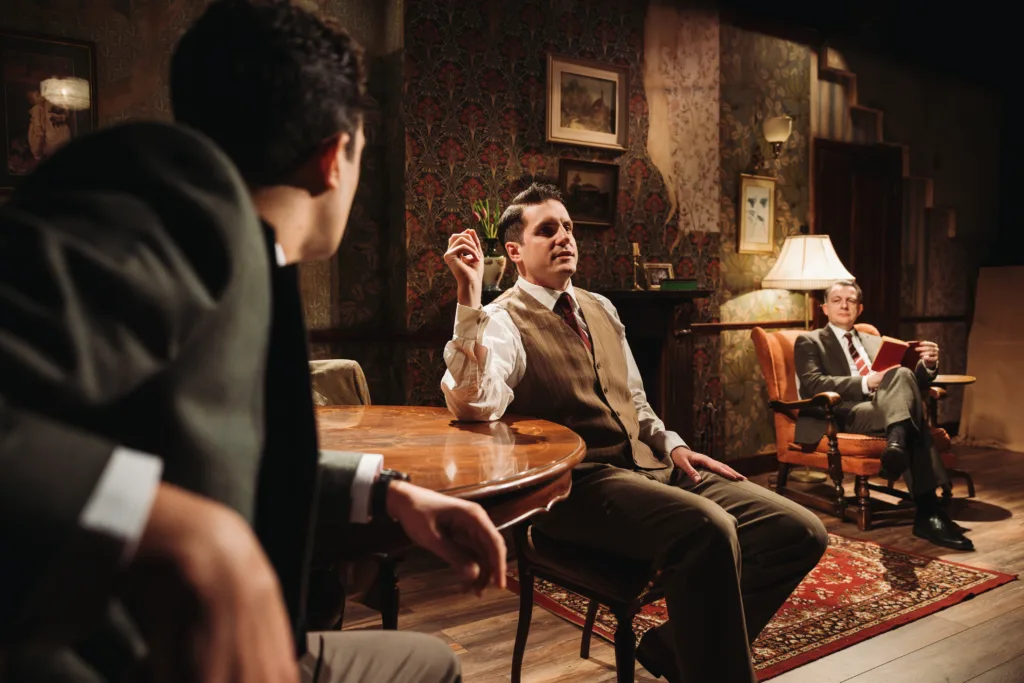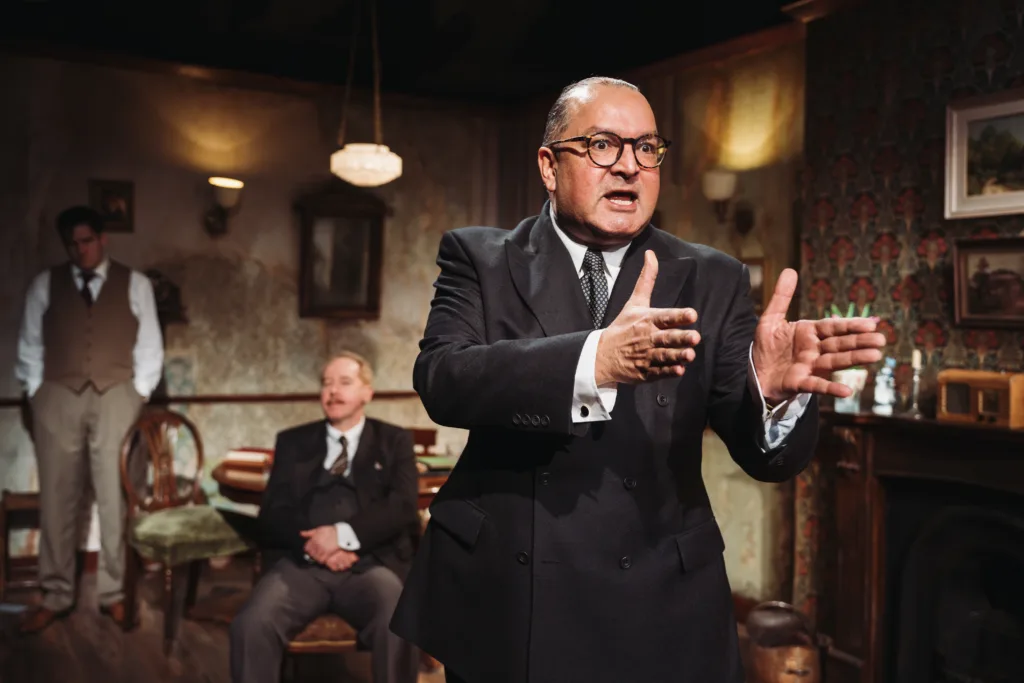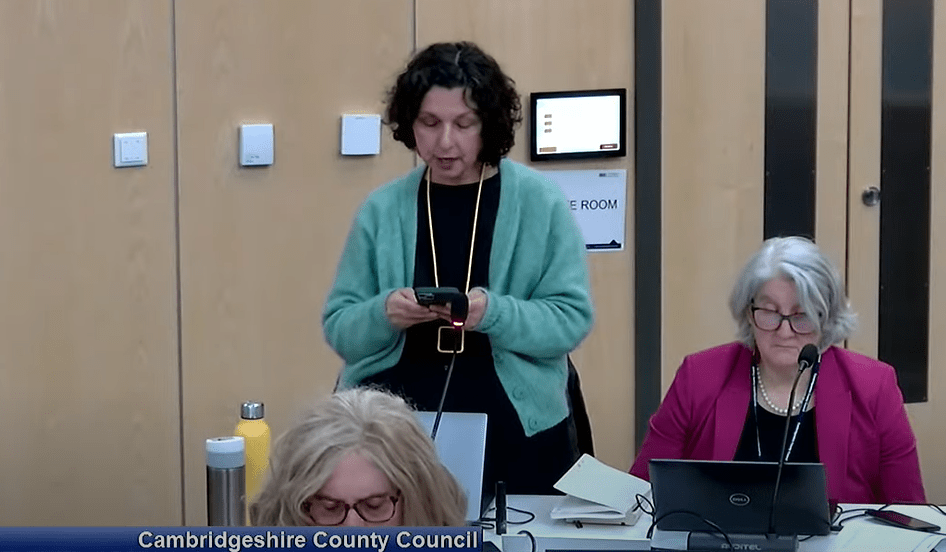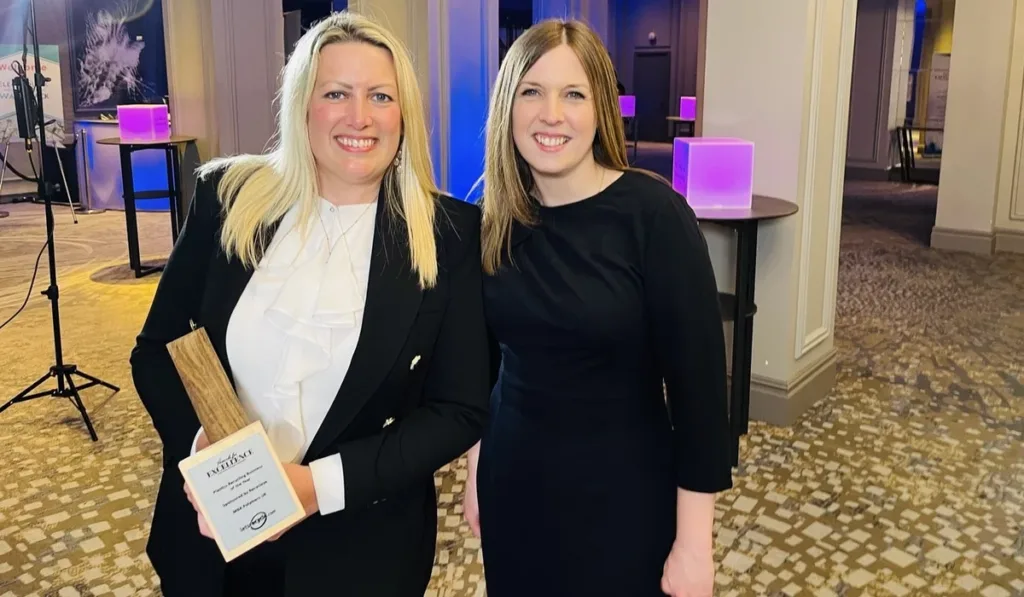Farm Hall by Katherine Moar at Cambridge Arts Theatre
Curious isn’t it that the atomic bomb was dropped on Hiroshima – and Nagasaki not by the Nazis, the evil forces of the Second World War, but by those we regard as the good guys, the saviours of Europe, the Americans.
Katherine Moar’s play, Farm Hall, asks why that was. German physicists too were working on developing the bomb. How come their project failed?
That is the premise of this sharply acted, fast-paced play, directed by Stephen Unwin, which has odd moments of humour.
In 1945, a group of German scientists were captured and brought to Farm Hall, an old house in Godmanchester, a village fourteen miles north of Cambridge.
Despite the British population being on food rations, the visitors were well fed, and according to the play, supplied with gin and brandy, board games and even an old piano for their entertainment. They were not there for punishment but for information.

Their conversations were listened to. The British wanted to know how far the Germans had got in developing the A Bomb.
The answer was not very far – and the play explores why. As the characters explain, the Nazis did not trust their own scientists. It was a matter of divide and rule, working groups were obliged to compete with each other. They were under-resourced.
And, as someone says, some of the finest minds – the Jewish ones were not allowed to take part. Jewish physicists at universities were replaced with Aryan ones. There is even a hint that the German scientists didn’t work as hard as they might have done.
As the play says, the Germans escaped having a moral dilemma of whether or not to drop the bomb because they didn’t have one.
When the group of captured German scientists hear that the bomb has been dropped on Japan on August 6, they are shocked. There is at first disbelief. Later one sobs at the news that so many people have been killed in an inferno.

Julies-DSilva-in-Farm-Hall-Photo-credit-Alex-Brenner
Another describes with horror how the women who painted the luminous dots on watches, so they glowed in the dark, died of radiation poisoning. They would put the paint brushes in their mouths he says, and their mouths would rot.
This display of compassion seems a bit of a stretch from people who were complicit with little children being killed in gas chambers.
And, yes, they did know, one of them says he saved some people “from the trains”. They knew where the trains were heading.
The play was well received by the first night audience at Cambridge Arts Theatre.
I am not its target audience. Almost all my father’s family were murdered in the Holocaust.
I find it hard to believe that any Nazi or anyone who worked for them put any value on any human life that was not their own.
But for others, those who do not have that background, I expect the play offers an interesting debate.
Farm Hall is at Cambridge Arts Theatre until Saturday, September 23.


















